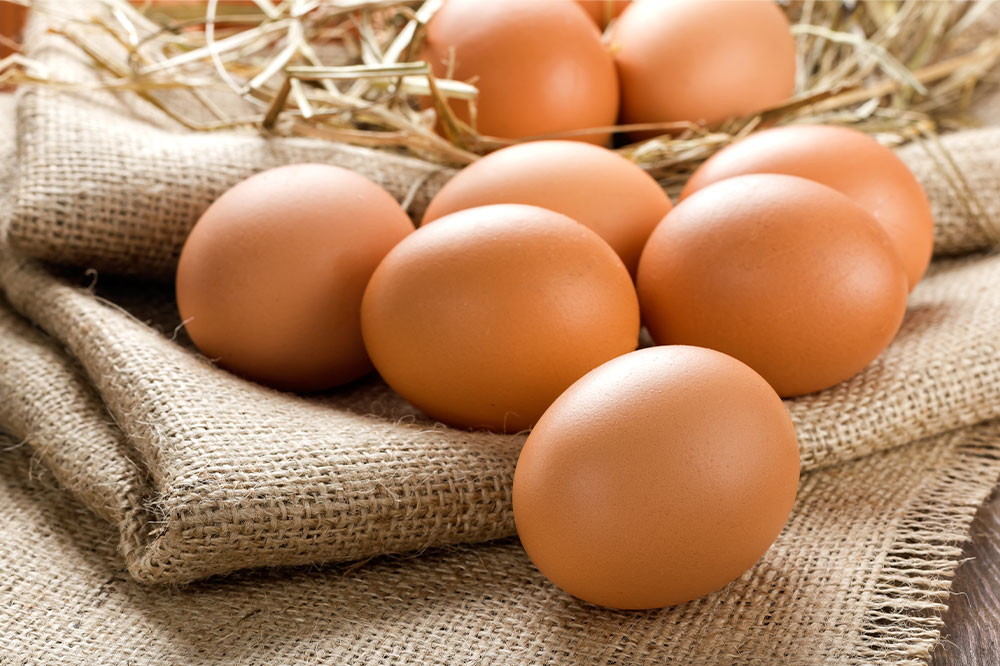Foods and mistakes to avoid for combating EoE disease

Eosinophilic Esophagitis, commonly known as EoE, is a chronic immune system disorder. In this condition, white blood cells named eosinophils rapidly grow along the walls and lining of a patient’s esophagus. As the esophagus connects the mouth to the stomach, EoE can cause digestive problems, chest inflammation, swallowing issues, and other complications. There are multiple causes of EoE disease, such as acidity, acid reflux, or allergic reactions. Here are some details related to this condition:
Symptoms of EoE Disease
Patients develop certain typical symptoms when they have EoE. Some such indicators of the condition are:
Difficulty in swallowing
White blood cells are commonly found along the digestive tract. However, their rapid growth in the esophagus narrows this tract. This results in frequent clogging and makes the passage of food from the mouth to the core digestive organs much more difficult. People with severe EoE find ingesting solid food particularly challenging and painful.
Abdominal pain and vomiting
The frequent internal clogging of food along the esophagus results in pain and heartburn in the chest. This clogging also usually causes a backflow of undigested food, commonly known as regurgitation. Therefore, EoE experiencers generally suffer bouts of vomiting.
Poor growth in children
Children need plenty of nutrients in their food for their growth and development. However, the eosinophilic growth along their esophagus stops food and nutrients from reaching the stomach. As a result, EoE can cause serious malnutrition and growth problems in children.
Causes of EoE Disease
The exact causes of the EoE disease are not known. However, researchers have found that allergic immune reactions to certain foods or substances in the environment, including animal dander, molds, pollen seeds, dust mites, and others, are among the chief triggers of the condition in patients. In certain research studies, specific genetic and hereditary factors have also been found to cause EoE in people.
Foods to avoid for combating EoE disease
As stated earlier, specific foods have been found to cause EoE flare-ups in individuals. Some of the foods to avoid are:
Eggs
Eggs contain lysozyme, albumin, globulin, lecithin, ovovitellin, and ovalbumin. These elements can cause an allergic reaction and abnormal eosinophilic growth in the esophagus of individuals. Therefore, any dishes made with eggs, meringue, or mayonnaise need to be strictly avoided.
Additionally, pudding and baked dishes such as cakes also contain eggs. Instead of them, eggless cakes can be eaten. Before buying and consuming any food, one needs to carefully read the list of ingredients to check whether eggs, yolk, egg whites, or any of the chemicals listed above are present or not. Substitutes for egg-based products are 0.25 cups mashed banana, or one teaspoon of baking soda plus a tablespoon of vinegar, or 0.25 cups applesauce.
Bran
Wheat products like bran contain gluten, one of the biggest EoE triggers, and other homologous proteins. These proteins and other elements cause allergic immune reactions that may result in the rapid growth of white blood cells along the food pipe. Therefore, wheat products must be avoided. Substitutes for wheat products are gluten-free foods, quinoa, rice, tapioca, buckwheat, barley beans/legumes, gluten-free oats, rye, and potatoes.
Milk
Most dairy products, including milk, butter, cheese, cream, and yogurt, are triggers for EoE in individuals. Milk ingredients and components such as diacetyl, lactose, rennet casein, casein, lactalbumin, lactulose, tagatose, whey, and recaldent can trigger EoE flare-ups. Additionally, some of the proteins in dairy products can also cause or aggravate the condition in patients.
Substitutes for dairy products include dairy-free yogurts, coconut, gluten-free oats, almonds, hemp, rice milk, dairy-free cheeses, coconut milk products, cashew ice cream, and hemp products.
Shrimp
All kinds of fish have been found to trigger EoE in individuals with the condition. Fishes such as shrimp, shellfish, crayfish, lobster, oysters, scallops, mussels, and other fishes contain proteins that cause allergic reactions in patients, especially the ones with immune hypersensitivity.
Walnuts
All kinds of nuts, such as walnuts, tree nuts, peanuts, and nut-based foods, such as peanut oil, nut extracts, and nut milk, can cause esophageal inflammation due to the elements and proteins present in them.
Eliminating these foods from daily meals is challenging due to their sheer nutritive value. Therefore, before removing them entirely, one must consult their doctor. Different individuals tend to have different triggers. Therefore, not all foods here may be harmful to all EoE patients.
Mistakes to avoid for combating EoE
Certain common mistakes people make while addressing EoE in patients include:
Carrying out pH monitoring to rule out EoE
pH monitoring is a useful way to detect conditions such as Gastro-oesophageal reflux disease (GORD), a condition similar to EoE. However, this diagnostic process does not accurately detect EoE in patients.
Treating EoE as a nonprogressive and mild condition
EoE is a rapidly growing inflammatory disease that may grow to life-threatening proportions in patients. Therefore, addressing it as a sensitive and dangerous disease is imperative for healthcare professionals and EoE experiencers.